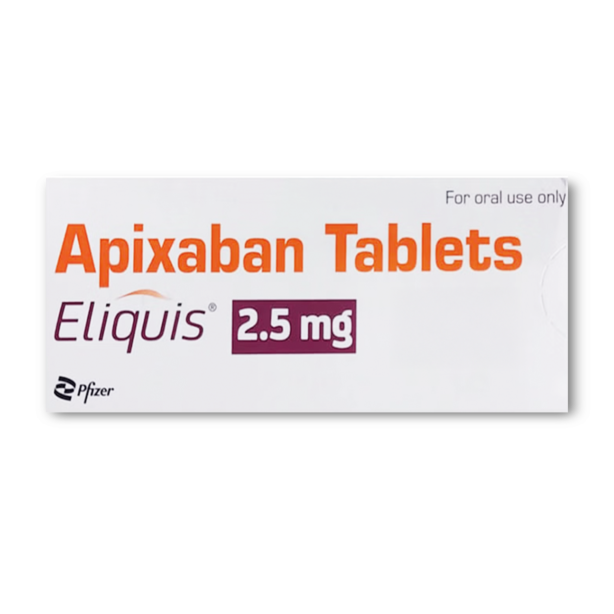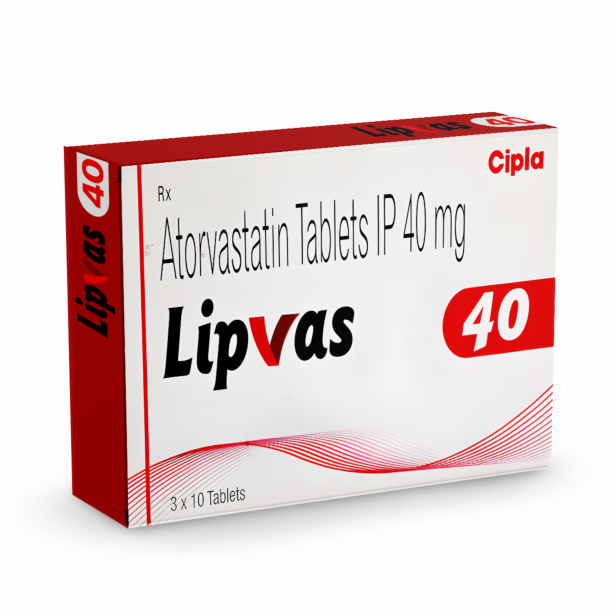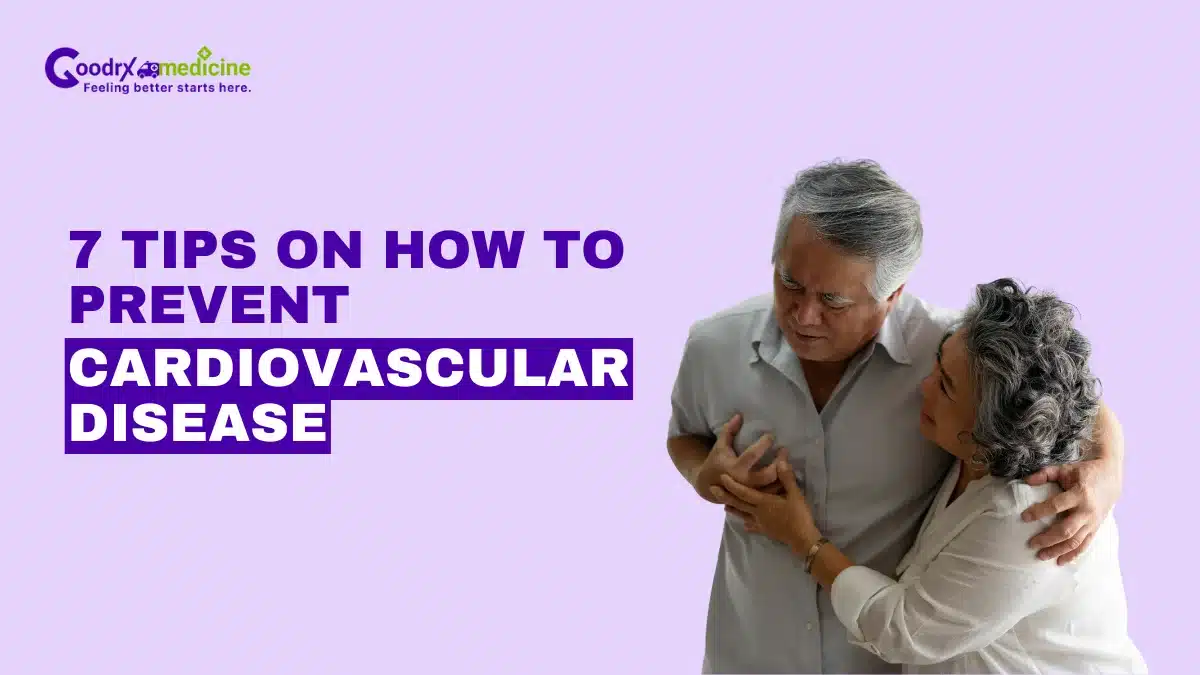Cardiovascular Disease (CVD) is the world’s most significant cause of death, taking millions of lives each year, but many of these tragedies are avoidable. Heart attacks, strokes, and other heart-related issues are frequently caused by everyday habits and silent risk factors that go undiscovered until it’s too late.
However, Cardiovascular Disease is generally avoidable with sensible choices and easy lifestyle changes. Whether you have a family history of heart disease or just want to protect your health, learning how to prevent Cardiovascular Disease is one of the most mighty acts you can do.
In this article, we’ll highlight the best practices that will help you take charge of your heart health, from what you eat and how you move to stress management and monitoring your vital signs.
How to prevent Cardiovascular Disease?
Cardiovascular Disease (CVD), including heart problems and stroke, is one of the major health issues worldwide. Still, up to 80% of cases can be prevented with lifestyle modifications and risk factor management.
A healthy diet, daily exercise, maintaining a healthy body weight, quitting alcohol and tobacco, managing stress, controlling underlying health issues, and getting sufficient sleep are seven effective ways to prevent Cardiovascular Disease.
Now, let’s discuss these Cardiovascular Disease prevention strategies in detail.
Save up to 90% on your medicine bills

Eliquis 2.5 Mg

Crestor 40 Mg

Lipvas 40 mg

Arkamin 100 Mcg
1. Healthy diet
What you eat significantly impacts your cardiovascular health. A heart-healthy diet to prevent Cardiovascular Disease should comprise the following:
- Fruits, vegetables, whole grains, legumes, and nuts high in fiber, antioxidants, and heart-healthy minerals.
- Lean proteins, including fish (mainly fatty fish like salmon and mackerel), skinless fowl, and plant-based alternatives like tofu and lentils.
- Avoid processed meals, fried dishes, and fatty cuts of red meat; instead, use healthy fats like olive oil and avocado in moderation.
- Choose fresh, minimally processed foods instead of canned soups, salty snacks, and high-sodium restaurant meals.
- Reduce your intake of added sugars, which are present in sweets, sugary drinks, and many packaged food items.
2. Regular exercise
Daily workouts play a crucial role in preventing heart problems by strengthening the heart muscle, boosting blood flow, and aiding in maintaining normal blood pressure and cholesterol levels.
Engaging in at least 150 minutes of less-intensity aerobic activity each week, including brisk walking, cycling, or swimming, can considerably lower the risk of heart attacks, strokes, and other cardiovascular events.
As per an article published in the Frontiers in Cardiovascular Medicine journal in 2018, frequent exercise has been associated with decreased risk of deaths due to Cardiovascular Disease.
3. Maintaining a healthy body weight
Maintaining a healthy body weight is essential for preventing heart health, as extra weight, particularly around the abdomen, raises the risk of High Blood Pressure (Hypertension), High Cholesterol, Diabetes, and inflammation, all of which strain the heart and blood vessels.
A healthy body weight reduces this burden by improving circulation, decreasing blood pressure, and promoting better metabolic function. Even minor weight loss (5% to 10% of body weight) can considerably lower cardiovascular risk.
By keeping a healthy body weight, individuals can improve their heart health and enhance overall energy, mobility, and quality of life.
4. Quitting alcohol and tobacco
Quitting alcohol and tobacco is one of the most effective ways to halt the onset of Cardiovascular Disease. Tobacco use is one of the preventable causes of Cardiovascular Disease. Its use can cause direct damage to blood arteries, boost heart rate and blood pressure, and significantly enhance the likelihood of heart attack, stroke, and Peripheral Artery Disease.
Similarly, excessive alcohol use can cause Hypertension, irregular heartbeats, and weakened heart muscles. Avoiding these toxic compounds allows your cardiovascular system to recover and function more effectively.
Avoiding alcohol and tobacco for a long time can significantly lower your risk of cardiovascular events and promote a healthier, longer life.
5. Managing stress
Chronic stress can cause High Blood Pressure, inflammation, and poor behavioral habits like overeating, smoking, or alcohol use, all of which increase the risk of heart disease. When constantly stressed, the body releases hormones, such as cortisol and adrenaline, which can strain the heart and damage blood vessels over time.
Mindfulness meditation, deep breathing exercises, regular physical activity, and proper sleep can all help reduce stress and improve heart health. Maintaining good social connections and getting professional help can also help with emotional well-being.
Individuals who try to lessen everyday stress enhance their mental health, safeguard their hearts, and reduce their long-term risk of Cardiovascular Disease.
6. Controlling underlying health issues
Controlling underlying medical conditions is essential for avoiding Cardiovascular Disease, as High Blood Pressure, High Cholesterol, Diabetes, and Obesity all raise the risk of heart disease.
Managing these health conditions requires regular monitoring, taking prescribed medications, and adopting significant lifestyle adjustments, including eating a balanced, low-sodium diet, exercising regularly, and maintaining a healthy weight.
Controlling blood glucose levels within target limits is vital for Diabetes patients to protect their blood vessels and hearts. Early diagnosis and consistent control of these risk factors can significantly decrease the chances of getting heart attacks, strokes, and other cardiovascular problems, making proactive healthcare an effective strategy for heart disease prevention.
7. Getting sufficient sleep
Getting enough sleep is an essential but frequently ignored factor in preventing Cardiovascular Disease. Insufficient or poor sleep, typically less than seven hours each night, can cause increased blood pressure, inflammation, stress hormones, and disruptions in glucose metabolism, all of which strain your cardiovascular system.
On the other hand, proper sleep enables the body to repair damaged blood vessels, regulate hormone levels, and maintain a healthy heart rhythm. Adhering to a regular sleep routine, creating a relaxing atmosphere, and reducing coffee or screen time before bed will enhance sleep quality, thus protecting your heart.
Conclusion
Wondering how to prevent Cardiovascular Disease? Preventing Cardiovascular Disease requires a thorough and proactive strategy considering lifestyle and medical factors.
People can drastically reduce their chances of heart disease by eating a balanced diet, remaining physically active, keeping a healthy body weight, avoiding tobacco, and limiting alcohol use.
Managing stress, getting enough sleep, and adhering to recommended treatments are all essential in protecting heart health. Prevention is not a one-time effort but a lifelong commitment to healthy living.
Prioritizing cardiovascular health improves our quality of life and protects our future from the leading causes of mortality and disability.

Frequently Asked Questions
Does fish oil prevent Cardiovascular Disease?
Yes, fish oil is high in omega-3 fatty acids that may help reduce triglycerides and inflammation linked to heart disease. However, evidence on its role in preventing cardiovascular events is mixed, and benefits may vary by individual.
Can dental health affect heart disease risk?
Yes. Poor dental hygiene and gum disease can cause inflammation and bacteria in the circulation, potentially leading to blocked arteries and heart disease. Brushing, flossing, and consulting the dentist regularly can reduce this risk.
Do cold temperatures affect heart health?
Yes. Cold weather can narrow blood vessels and increase blood pressure, enhancing the risk of heart attacks, particularly in patients with cardiac issues. Dress appropriately and prevent rapid physical activity in chilly conditions.
Is prolonged sitting bad for your heart?
Yes. Prolonged sitting decreases circulation and contributes to weight gain, Diabetes, and unhealthy cholesterol levels. Take brief breaks every hour to exercise and stretch, especially if you are working or traveling for an extended time.
Can early menopause affect heart disease risk?
Yes. Women undergoing Menopause before age 45 have a greater risk of Cardiovascular Disease due to lower Estrogen levels. Lifestyle changes and medical follow-up can help manage this risk.
When referencing outside resources, GoodrxMedicine always provides full citations. To learn more about the measures we use to maintain the quality of our content, please review our Content Information Policy.











